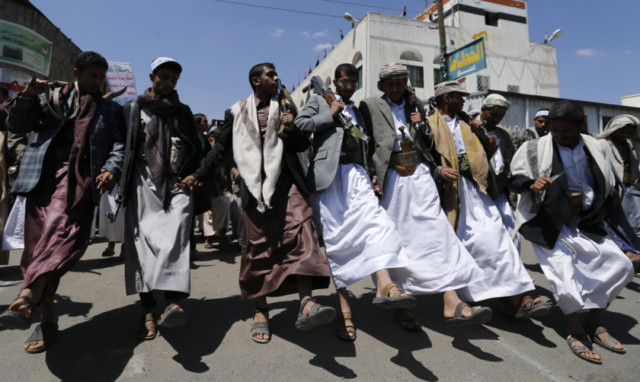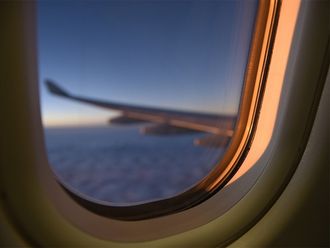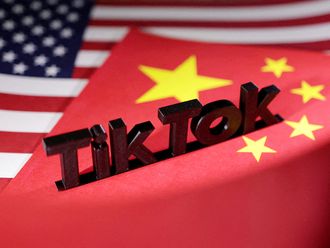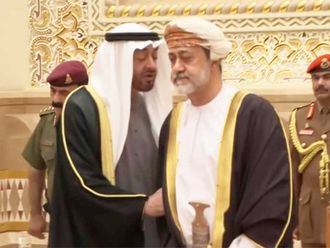
Sana’a: Al Houthi rebels have deployed heavy troops in the last couple of days in the Yemeni capital to foil possible attacks by Al Qaida to disrupt an annual Shiite celebration on Sunday. The rebels overran the capital on September 21 following short armed clashes with rival religious and military groups.
New checkpoints set up by Al Houthi rebels were seen on the outskirts of the capital, checking people’s IDs. On Saturday night Shiites were celebrating the Al Ghader festival with fireworks and celebratory gunfire. Similar celebrations took place in the Al Houthi-controlled province of Sa’ada, in northern Yemen. Shiites have been celebrating the festival, which marks the appointment of Ali Bin Abi Talib, Prophet Mohammad’s (PBUH) cousin, as successor to the Prophet (PBUH) for centuries.
“Al Houthi militants have beefed up security measures in the neighbourhoods and questioned residents who leave houses. They also deployed forces at government buildings and asked them about their IDs,” Mansour Al Jaradi, a resident and a journalist told Gulf News.
Al Jaradi thinks that Al Houthis security measures were mainly intended to thwart any attack by Al Qaida militants who vowed to target Al Houthi gatherings across the country.
On Thursday, a suicide bomber blew himself up in a protest organised by Al Houthis in the capital’s Al Tahrir Square, killing at least 47 and wounding hundreds. The protesters took to the streets in response to a call by the group’s leader to reject naming Ahmad Bin Mubarak, the Yemeni president’s secretary, as the new prime minister.
The next day, Yemen’s active wing of Al Qaida claimed responsibly for the deadly attack through a statement on its Twitter account. But Al Houthi activist, Osama Sari, accused US agents in Yemen of carrying out the attack.
“We blame the US and its agents in the country for killing the protesters,” he told Gulf News shortly after the explosion.
Politically, Yemen president Abd Rabbo Mansour Hadi and other political parties have continued discussing selecting a new prime minister after Al Houthis denial of Bin Mubarak.
Al Houthis signed a peace deal with the government on the same day that they tightened a grip on the capital on September 21. Under the deal, the president agreed to dissolve the outgoing prime minister and replace him with a non-partisan one who would be recommended by Hadi’s advisers. In exchange, the Al Houthis would pull out of the capital, hand over weapons that they controlled from the capital and stop hostilities in the provinces of Amran and Jawf.
Al Jaradi said that the stalled process of selecting the prime minister shows deep differences among Hadi’s advisers.
“There is no doubt there are clashes behind the scenes between the political forces. Each party seeks to impose an affiliated prime minister.”
Al Jaradi forewarned of further turmoil if the political stand-off continued.
“They should forget their differences and give priority to the country’s interests. The current political vacuum could create intractable problems.”












